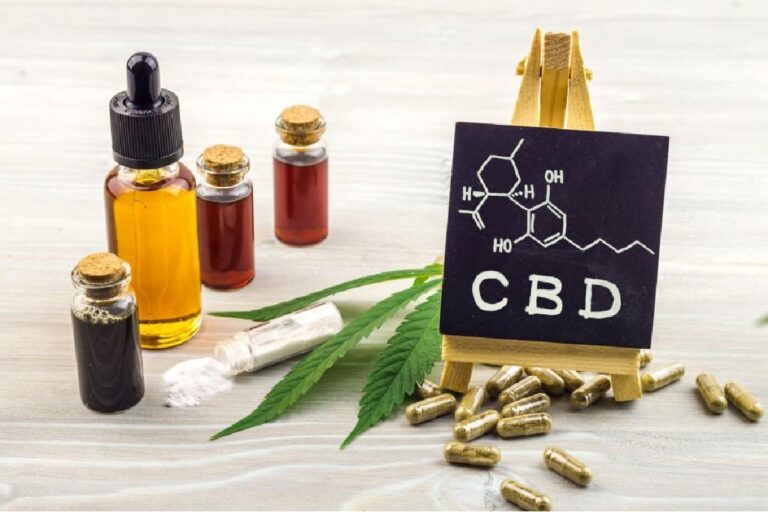Introduction
In recent years, CBD (cannabidiol) has garnered significant attention for its potential therapeutic benefits. As the popularity of CBD products grows, so does the variety of formulations available in the market. Full-spectrum CBD oils have emerged as a favored option for many users due to their unique composition and potential synergistic effects. This article will delve into the world of full-spectrum CBD oils, exploring their definition, structure, types, and potential advantages over other CBD formulations.
Definition of Full-Spectrum CBD Oils
Full-spectrum CBD oil is a hemp-derived CBD product that covers a wide array of cannabinoids, terpenes, and other helpful plant compounds found naturally in the cannabis plant. Unlike CBD isolates or broad-spectrum CBD, full-spectrum oils retain all the phytochemicals present in the hemp plant, including trace amounts of THC (tetrahydrocannabinol). Rendering to the 2018 Farm Bill in the US, full-spectrum CBD products are legally required to contain less than 0.3% THC, ensuring they do not induce psychoactive effects.
Structure of Full-Spectrum CBD Oils
The composition of full-spectrum CBD oils sets them apart from other CBD products. These oils contain various cannabinoids, such as CBD, THC, CBG (cannabigerol), CBC (cannabichromene), and CBN (cannabinol). In addition to cannabinoids, full-spectrum oils contain aromatic compounds called terpenes, which contribute to the characteristic aroma and flavor of the oil.
The entourage effect is a concept that explains the potential synergy between cannabinoids and terpenes when consumed together. It suggests that the combined presence of multiple cannabinoids and terpenes can enhance the overall therapeutic effects of CBD, making full-spectrum CBD oils potentially more effective than isolates or broad-spectrum CBD products.
Types of Full-Spectrum CBD Oils
As the CBD market expands, various types of full-spectrum CBD oils have emerged, catering to different needs and preferences of consumers. Some of the common types include:
- Raw Full Spectrum CBD Oil: This type of oil is minimally processed and undergoes minimal filtration, ensuring it retains the majority of cannabinoids, terpenes, and other plant mixes present in the hemp extract.
- Decarboxylated Full Spectrum CBD Oil: Decarboxylation is a process that involves heating the raw hemp extract to activate its compounds fully. Decarboxylated full-spectrum oils have gone through this process to enhance the availability of cannabinoids in their active forms.
- Filtered Full Spectrum CBD Oil: This type of oil undergoes more extensive filtration to remove certain plant compounds, such as waxes and chlorophyll, resulting in more refined and lighter-colored oil.
- High THC Full Spectrum CBD Oil: While most full-spectrum CBD oils adhere to the legal limit of 0.3% THC, some products contain higher concentrations of THC. These oils may be available in regions with higher THC levels for medical or recreational use.
Advantages of Full Spectrum CBD Oils
The use of full-spectrum CBD oils offers several potential advantages over other CBD formulations:
- Enhanced Therapeutic Effects: The entourage effect suggests that combining cannabinoids and terpenes in full spectrum CBD oils may enhance the overall therapeutic benefits, making them potentially more effective than CBD isolates.
- Increased Bioavailability: Full spectrum CBD oils are believed to have higher bioavailability due to the presence of diverse compounds that may work together to improve absorption and utilization in the body.
- Natural and Holistic Approach: Full spectrum CBD oils derived from natural hemp plants undergo minimal processing, appealing to those seeking a more holistic and organic approach to wellness.
- Potentially Lower Side Effects: THC in full spectrum CBD oils may contribute to a balanced and moderated effect on the body, potentially reducing adverse side effects commonly associated with isolated CBD products.
Conclusion
In conclusion, full-spectrum CBD oils are a unique and promising category of CBD products. Their distinct composition, containing various cannabinoids and terpenes, allows for the potential entourage effect, providing enhanced therapeutic benefits compared to other CBD formulations. It is essential to consider individual needs, legalities, and the quality of products when choosing any CBD oil, including full-spectrum varieties.
As research into cannabinoids and their potential benefits continues to expand, we can expect a deeper understanding of full spectrum CBD oils’ specific advantages in health and wellness. Always refer to a healthcare expert before starting any CBD regimen, mainly if you are on medications or have underlying health conditions.


